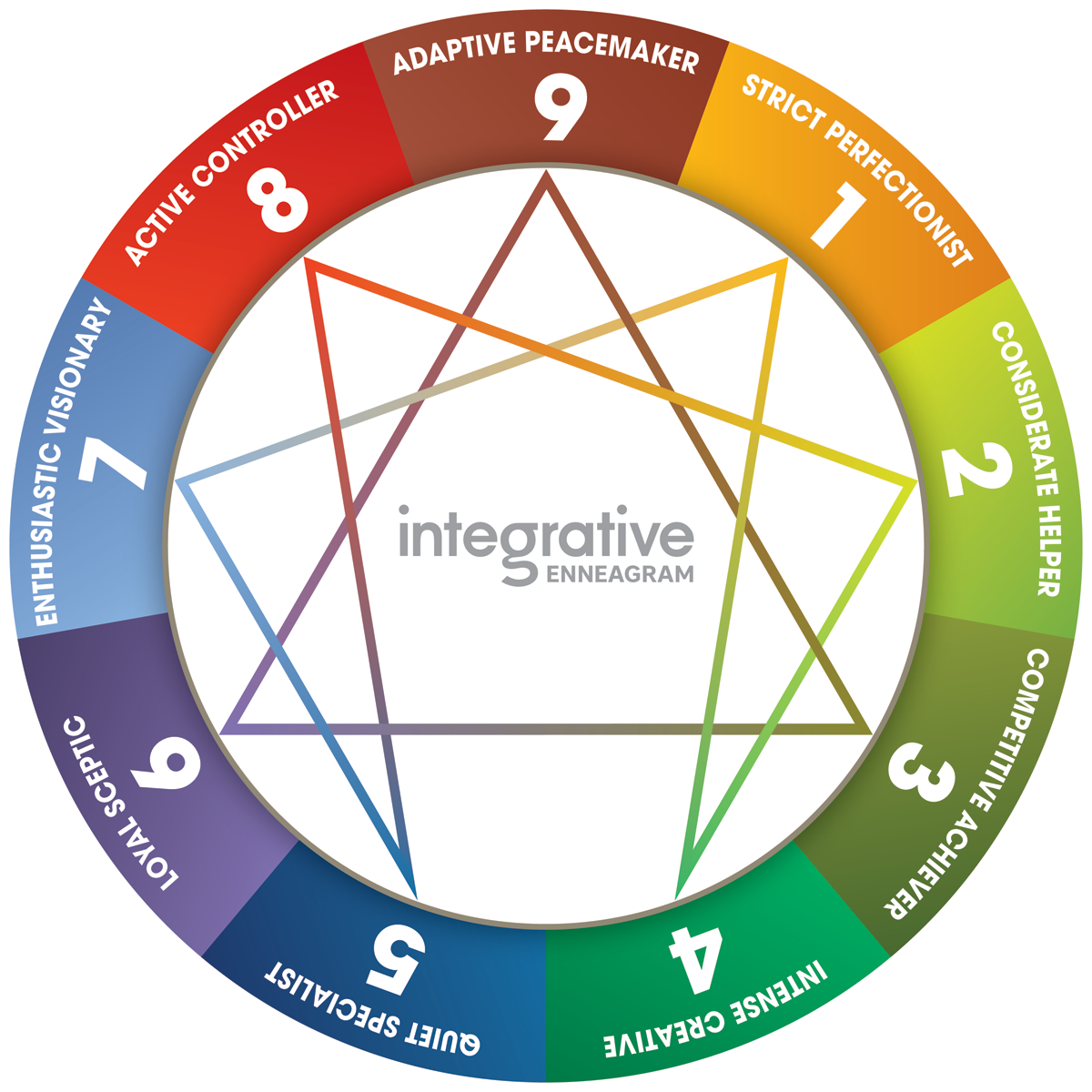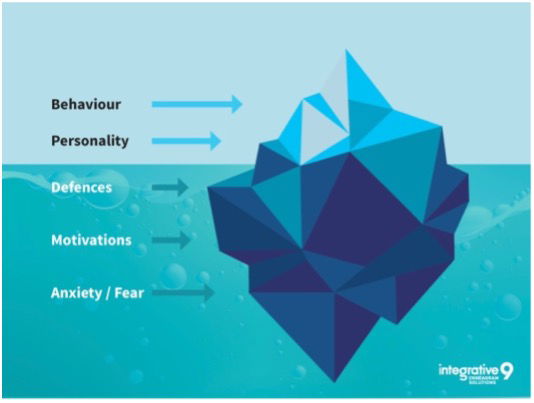Three Reasons to Consider the Enneagram in a Career Exploration

By Camille Block
If you have been alive in the past several decades and attended college or held a professional job, you are likely familiar with the Myers Briggs (MBTI) Assessment. In fact, you probably can rattle off your four letters like your horoscope or social security number.
No doubt, many have grown accustomed to their label (ENFP - my personal letters) like a comfortable jacket and a part of their brand identity. MBTI has even become an interview question for many employers as they get to know their candidates or provide onboarding support for their new hires.
Well, step aside Myers Briggs and welcome the Enneagram to the self-awareness party. Don’t worry – Myers Briggs is here to stay as a helpful tool to pinpoint behavior and personality typing. But, if you haven’t yet heard of the Enneagram assessment, you will soon. It is emerging as a valuable self-assessment tool for individuals and groups – personally and professionally. It is a powerful way to examine the complex layers beneath one’s behavior and personality. It answers several questions, including my favorite: WHY?

Why do you do what you do? What is the underlying motivating force behind your behavior, reactions, choices? What are the fears and blind spots that may be holding you back? Why do you seem to thrive in some environments and not in others? And how can you recognize these patterns and find healthy pathways for growth that are easy for your “type” to access?
Recently, I discovered the power of the Enneagram for those in a career transition – or “life pivot” – and had to share because of the profound impact it had on my first clients.
The Enneagram – if accurately tested and understood – is essentially a tool to develop greater Emotional Intelligence (EQ). According to a study by Johnson & Johnson Consumer & Personal Care Group, emotional intelligence is a distinguishing factor in leadership performance, and according to Forbes, the strongest predictor of success. EQ is made up of two qualities: the ability to recognize, understand and manage our own emotions, and the ability to recognize, understand and influence the emotions of others.

So often, career guidance is about one’s skills. Many assume that just because someone is good at something, that this skill represents a career path. You may be good with numbers, but that doesn’t mean you necessarily want to be an accountant. Clearly, skills are only one part of the equation. Drive (intrinsic motivation) and interest are equally or more important. This is the greatest strength of the Enneagram – creating and building self-awareness of what drives and motivates people at their core. Not only will this layer of analysis possibly lead to a more sustainable career, but also it may unpack one’s ultimate purpose where they will flourish – in a job or in life.
To understand the Enneagram, a helpful illustration is one of an iceberg. It is usually only visible above the water, showing only a jagged ice protrusion. It may look unassuming, small, intimidating, beautiful and sharp all at the same time - analogous to what is easily seen in people by their personality and behavior. But underneath the surface lies the iceberg’s power, vastness, complexity and actual size – similar to our motivations, defenses, anxieties, and fears that lie deep within us.

Often, people think they know us by what they see – our behavior, actions, words. The rest of their knowledge is likely guesswork. Only WE are able to know what drives our actions, but often these drivers are unconscious. Some choose to do a deep dive and discover these underlying complexities and others opt out and are satisfied with “this is just who I am” without the self-discovery process.
Taking the opportunity to find the “why behind our what” and become more self-aware of our core drivers can be an enriching tool for our personal growth as well as in a career exploration. HR Departments have been cognizant of the need for employees to be more self-aware for decades as evidenced by the number of assessment tools used in recruiting, onboarding and talent development.
Here are three reasons I am a fan of using the Enneagram assessment in a time of professional exploration or career search. The Enneagram can help you:
1. Gain clarity on what type of work environment is the best fit for you based on having greater awareness of what drives your behavior. For instance, if your core motivation in life is to seek new adventures, engage in social interaction, make an impact and influence others (and you get bored doing the same thing over and over again), you may not be happy in a job working remote full time at home with repetitive tasks. Unless, however, you can take the job on the road to new, fun places and spend your spare time with people either in a high impact side gig, a volunteer position or exploring new activities with family. Then, it could be an option.

Or, if you are a highly motivated executive with ambitions to lead and run a business, you may not want to entertain a role where the position reports to the President of a family-owned business as your ambitious goals may be capped. This is especially true if the President has no intent on leaving. A better option may be a role with a clear and achievable succession plan that meets your goals for leadership, management and promotion.
2. Discover your inner (and often buried) fears and underlying causes of anxiety – and gain strategies to address them. For example, you may end up staying in a job you have outgrown simply because you don’t like the conflict that comes when you consider the risk of going through a job search. Likewise, your instinctive fear of conflict and desire to “keep the peace” at all costs may prevent you from having the difficult conversations with your boss or a co-worker, and is getting in the way of a well-deserved promotion or enjoying greater job satisfaction.
Or perhaps the perceived need to appear successful in others’ eyes may have you interviewing for jobs that carry impressive titles, but ultimately won’t fulfill you.
3. Improve your confidence and skills in interviewing by increasing your overall self-awareness and emotional intelligence. I have spent time recruiting and interviewing throughout my career, as well as coached professionals on how to improve their interviewing skills. As a result, I can attest that qualified candidates who know and articulate themselves well in an interview stand out, usually pass the first screen, and often end up a top candidate.

Additionally, when a job candidate can authentically articulate what motivates them (one of my tried-and-true recruiter and coach questions), a good recruiter is better able to determine if the job is a good match (accelerating the interviewing process). Another benefit is that when hiring managers/recruiters interview a self-aware candidate, they gain insight in recommending how best to set up the candidate for success. For instance, for the candidate driven by a competitive nature to achieve, this may mean structuring incentives and goals so they will not get bored. Or for the candidate who thrives by deep connections with people, they may excel sooner with a personal mentor for an onboarding program. Being able to articulate your core motivation not only helps the employer assess sooner if you are the right person and set you up for success (if they are smart), but it also ensures you will be happier and probably stay longer with the position.
If you are interested in exploring more, contact a career coach who is certified with the Enneagram. For the most accurate assessment, check out why the Integrative Enneagram IEQ9 is my pick and why it is the one mostly used in business.

While the Enneagram is not meant to match a “Type” to a specific job or field, it is a helpful tool to empower individuals to grow as people, leaders, in relationships and within a work environment. Measuring motivations (Enneagram) is different from behavior (Myers Briggs) and offers a new approach to add to a career pivot or job search to find meaningful and fulfilling work.
Camille Block is an Executive Career Advisor and Career Coach who helps clients in a transition simplify and accelerate their job search. She works in her own consulting practice, Connectivity and also in the executive division of LHH. She is also a Certified Integrative Enneagram Coach. With a background in executive recruiting, career coaching, sales and marketing, she is driven to help coachable professionals bridge the gap from where they are to where they want to be. She is known for her high touch, concierge-style to equip clients with all aspects of the career search or pivot process. For more information, see Camille's website www.connectivity.cc.